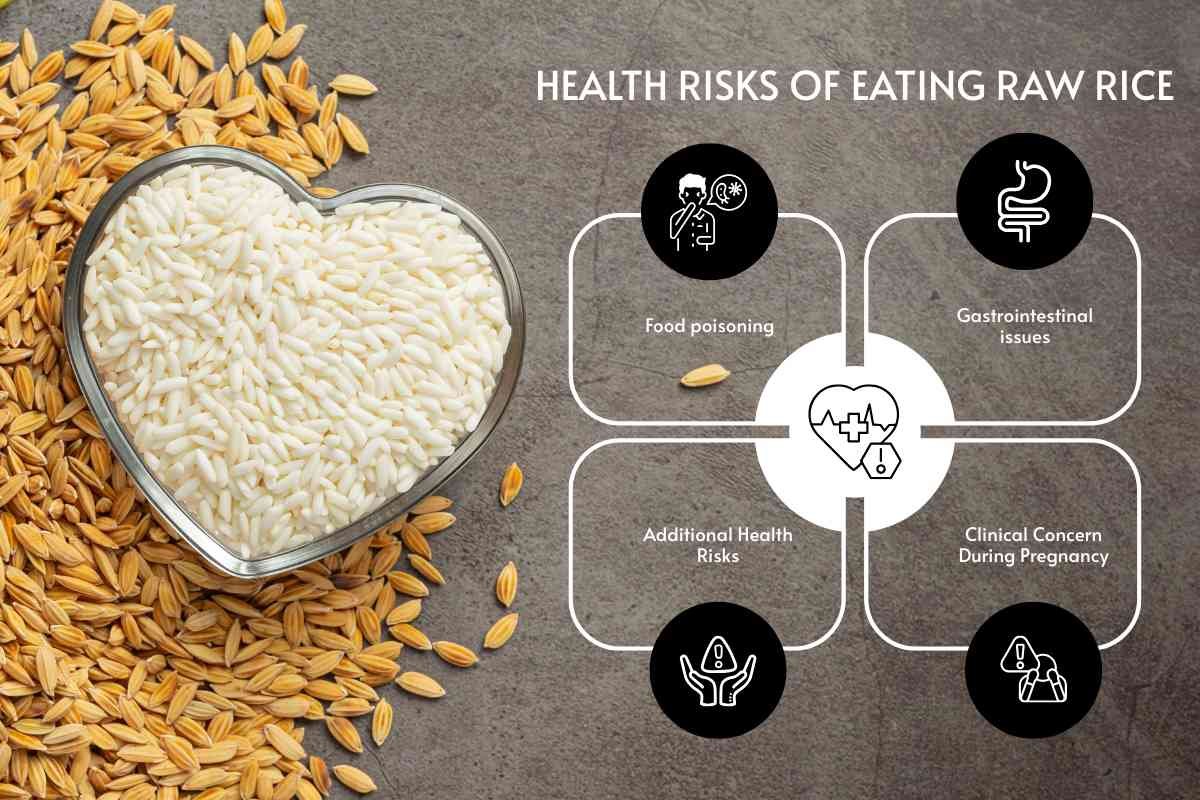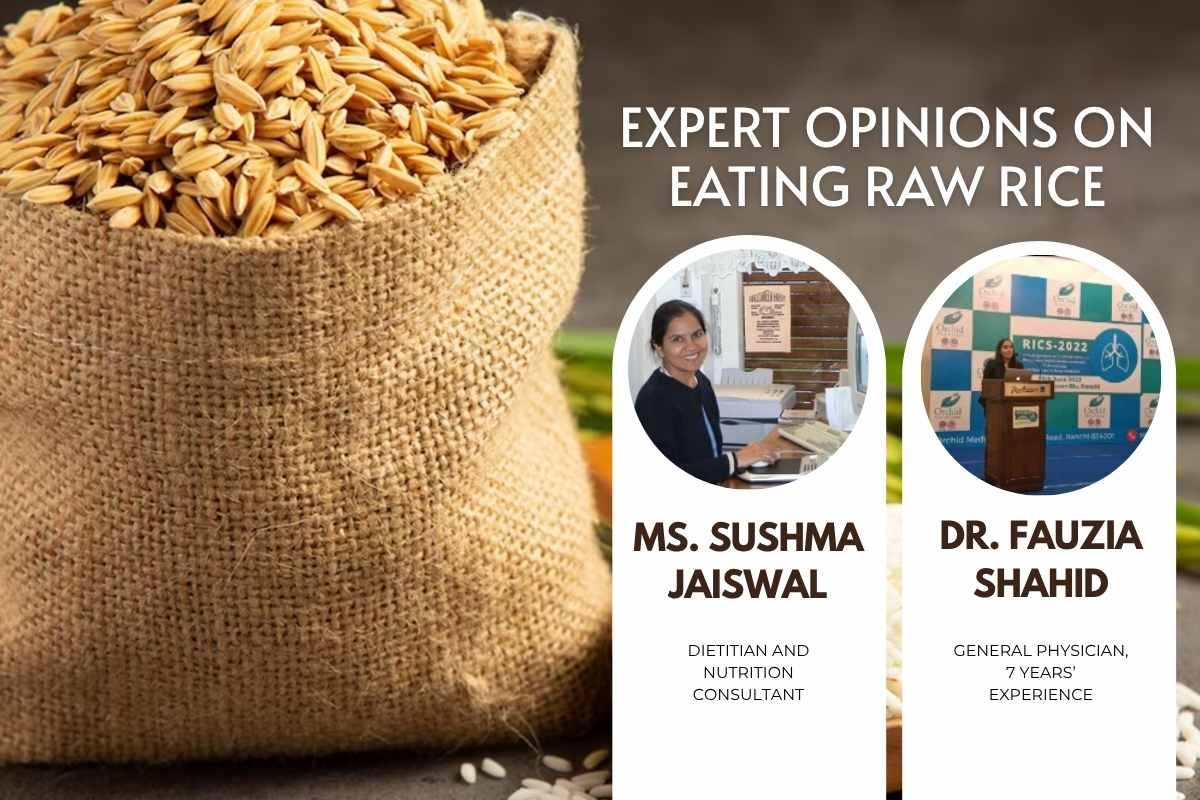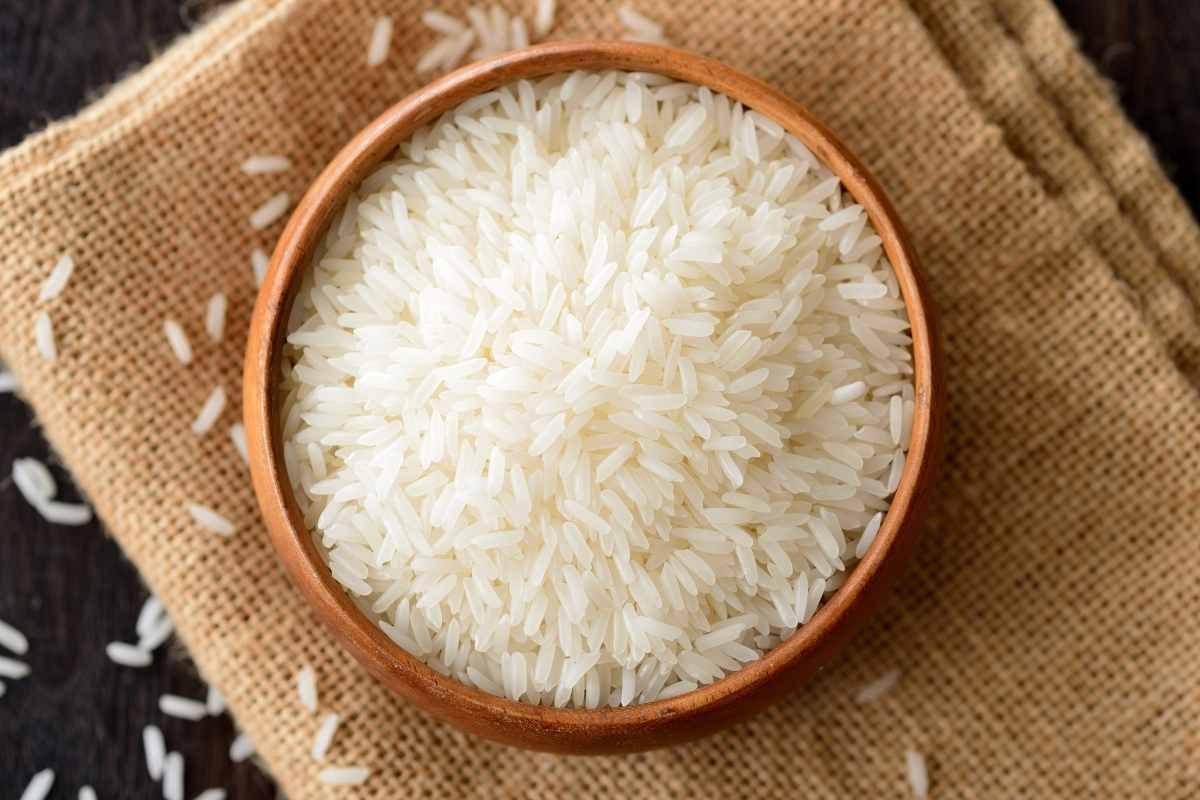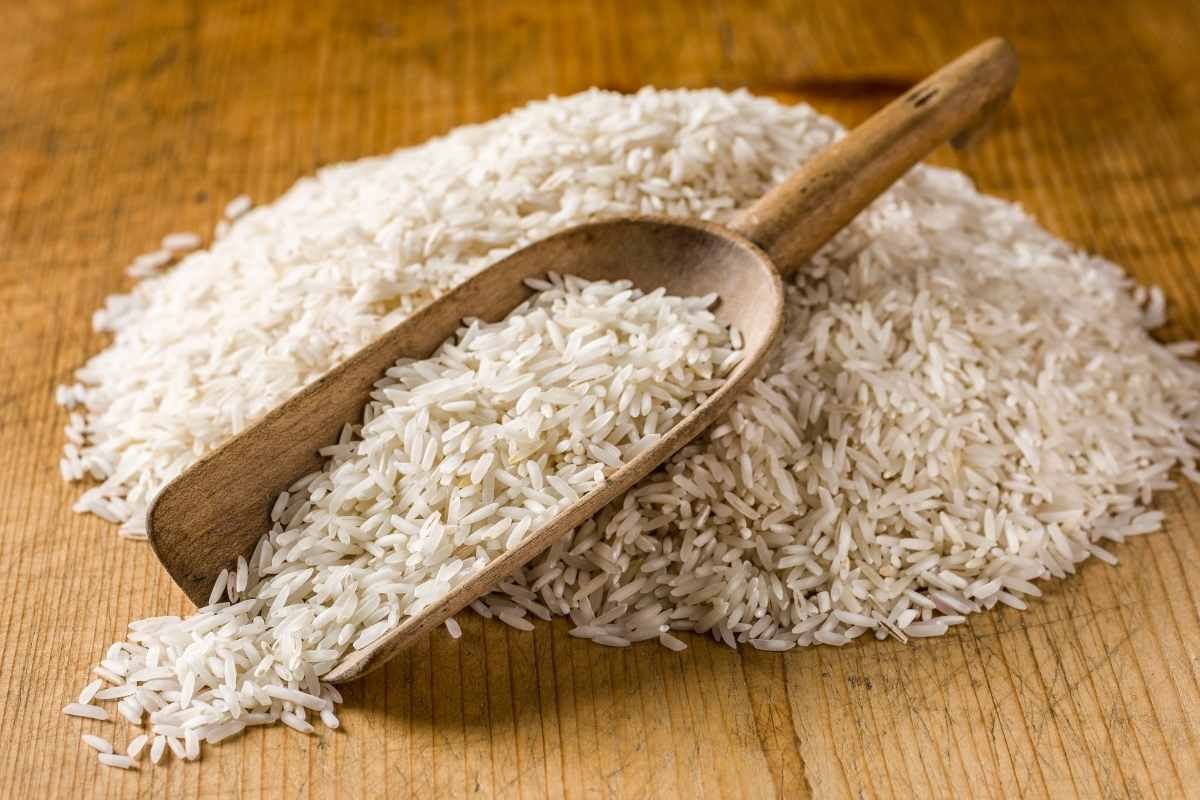Did you ever have a strange craving, a yearning for something… odd? It’s an itch at the back of your mind, a feeling that you want to consume something truly raw and unprocessed. Yes, I’m talking about Eating Raw Rice.
Why does such a notion, seemingly so simple, create such interesting curiosity? Is it the crunchy texture, the earthy flavor, or something else?
Join us for an interesting quest into the science behind the craving to eat raw rice. We’ll explore its nutritional values or lack of values that are risky for health. We’ll unpack this curious behavior. But really, the question remains: Is it safe to eat raw rice, or are we inviting unknowing consequences? Come, let’s figure out this mystery together.
What does Eating Raw Rice Mean? The Science Behind Craving Raw Rice:
Eating rice raw is not a weird habit; it comes with serious health risks. From food-borne illnesses and gastrointestinal issues to lectins and toxic amounts of heavy metals, the risks are real. This can also cause oral concerns and influence balanced nutrient absorption, particularly for those in some vulnerable classes, such as children, those who are pregnant women, and those with compromised immune systems. Reference taken from Wiley Online Library, a paper published by Rebecca M. Bruce and Philip G. Crandall.
That persistent urge to munch on uncooked rice might be pica, a condition characterized by cravings for non-food items. Often, pica is linked to iron deficiency anemia. Getting your iron levels checked and treated (via supplements or diet) frequently resolves this unusual craving, according to Dr. Yatendra Singh.
Health Risks of Eating Raw Rice:

Eating raw rice can pose serious health risks; learn the compelling reasons why it’s best to avoid this habit:
1. Food poisoning
Eating raw or undercooked rice significantly raises your risk of food poisoning. Rice often harbors harmful bacteria like Bacillus cereus (B. cereus). Studies show nearly half of commercial rice samples contain B. cereus. These bacteria form spores, surviving even cooking. While high temperatures generally control B. cereus in freshly cooked rice, cooler temperatures in raw, uncooked, or improperly stored rice can promote its growth. B. cereus food poisoning can cause nausea, vomiting, stomach cramps, or diarrhea within 15–30 minutes.
2. Gastrointestinal issues
Raw rice contains lectins, natural insecticides that act as “antinutrients,” hampering nutrient absorption. Since humans can’t digest lectins, they pass through the gut unchanged, potentially damaging the intestinal wall and causing diarrhea and vomiting. Cooking rice effectively eliminates most of these problematic lectins.
3. Additional Health Risks
Consuming large amounts of raw rice due to pica can lead to fatigue, abdominal pain, hair loss, tooth damage, and iron deficiency anemia. If you suspect pica in yourself or someone you know, seek medical advice promptly to prevent serious health complications.
4. Clinical Concern During Pregnancy
Eating uncooked rice while pregnant, particularly after 25 weeks, poses several risks. You could be exposed to harmful contaminants like aflatoxins and arsenic, leading to potential health issues. It can also cause digestive problems, gestational diabetes, and nutrient imbalances. Instead, talk to your obstetrician or a registered dietitian for safer, healthier snack alternatives and to manage any cravings.
Source: https://www.healthline.com/nutrition/raw-rice#risks
Expert Opinions on Eating Raw Rice:

1. Ms. Sushma Jaiswal (Dietitian and Nutrition Consultant)
In some places, eating raw rice is emerging as a trend to avoid highly processed foods to eat them in their natural form. The side effects could be that the raw rice has a substance that is toxic, and if eaten, it produces vomiting and indigestion within 24 hours. Raw rice also has a substance called lactam, which is associated with celiac disease, colorectal cancer, and diabetes.
YouTube source: https://www.youtube.com/watch?v=SXWen5Jd9uc
2. Dr. Fauzia Shahid (General Physician, 7 years’ experience)
That urge to eat non-food items? It’s called pica. It’s often linked to iron deficiency anemia, but can also signal other mineral imbalances like low zinc or calcium. You need to boost your intake of iron-rich foods (leafy greens, beans), zinc-rich foods (seeds, nuts, whole grains), and calcium-rich foods (dairy, leafy greens).
Case Study: Pica for Uncooked Basmati Rice in Two Women with Iron Deficiency

An interesting example appears in a case study of two nonpregnant South Asian women in the U.S. who developed an irresistible craving to eat raw rice, specifically uncooked basmati rice. Both women were vegetarians with iron deficiency anemia, which impaired them physically by causing fatigue, abdominal pain, hair loss, and dental problems due to the frequent eating of raw rice.
They had a diagnosis of ryzophagia in the case study. Interestingly, both women’s cravings completely stopped following iron infusion therapy. They presented as real-world examples that strongly associated eating raw rice with nutritional deficiencies, chiefly iron. They also demonstrated that medical assessment of clients who reported rare food cravings should take place.
Similar Articles:
- Eating Raw Chicken Symptoms You Should Never Ignore
- You Won’t Believe These Are 15 Foods That Cause Food Poisoning
- You Won’t Believe What’s on the List of the Most Unhealthy Foods
Conclusion
The idea of Eating Raw Rice may seem like an odd craving, but science has offered a distinct warning. Eating uncooked rice is not as harmless as you may believe. There are risks of health problems, such as food poisoning, gastrointestinal issues, or potential exposure to heavy metals and nutrient imbalances.
These cravings are an indicator of pica, or the uncontrollable urge to eat non-food items, specifically related to Iron Deficiency Anemia, which requires medical treatment. So, if you’re not sure what to do regarding these cravings, your health is most important.
Understand the risks of eating uncooked rice, but more importantly, speak to a healthcare professional regarding why you might be craving it and what other, healthier alternatives exist. Don’t allow your curiosity to compromise your health.
FAQ:
1. Is uncooked rice safe to eat?
Eating washed but uncooked rice is generally not recommended. While washing rice removes surface starch, dirt, and impurities, uncooked rice can contain harmful bacteria, such as Bacillus cereus, which can cause food poisoning.
2. How do I stop craving rice?
Find an alternative to white rice. Black rice or brown rice is recommended. You could also mix the grains if need be; this may help you with the cravings.
3. What are the benefits of eating soaked rice?
Soaked rice is rich in B6, B12 vitamins and is a source of beneficial bacteria, which help in digestion and boost immunity. The given samples of normal cooked rice and overnight soaked cooked rice are tested for carbohydrate, crude protein, fat/oil, and fibre content.







